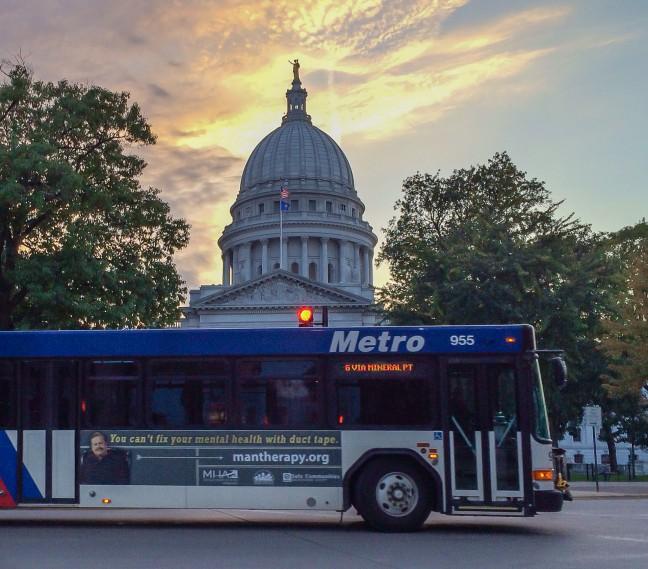An organization that puts less pressure on taxpayers and focuses solely on the local transportation system could become a reality as Madison City Council works toward enacting a regional transit authority for Dane County.
In light of Wisconsin’s growing transportation budget restraints, an RTA was proposed in a City Council resolution to help provide localized funding solutions for Madison. The RTA would focus solely on Dane County’s transportation needs and issues the same way the Wisconsin Department of Transportation focuses on the whole state’s.
Many people who work in the city live in the suburbs but are not always within areas Metro Transit covers, Ald. Mike Verveer, District 4, said. An RTA would allow for more transportation opportunities in Dane County and possibly beyond.
Verveer said RTAs bring together several local governments to offer transportation to people who live in those areas. The state previously had provisions for RTAs but those were repealed because of budget cuts in 2014.
While Madison has transportation agreements with places like Fitchburg and Verona, Verveer said there is still no reliable source that could fund more transportation alternatives for people who live in suburban areas.
“If we had an RTA in place that had a real funding source … then there would be plenty more opportunities for public transportation for people in the entire region and maybe even forms of public transportation beyond the traditional bus service,” Verveer said.
According to the resolution, Madison transit ridership per capita is in the top 15 in the nation, among cities like Miami and the Twin Cities in Minnesota.
Verveer said budget restraints in the city did not allow officials to purchase an expanded bus barn. A larger bus barn could help manage the city’s existing fleet of buses and possibly grow it in the future.
“The Madison Metro’s existing bus garage … it’s bursting at the seams,” Verveer said. “There’s way more buses parked there every day than the facility was built for.”
Verveer said Madison and Dane County are not the only places who are looking into RTAs. Areas like the Fox Valley region are also interested in pursuing an RTA.
Putting a more efficient and modern system in place could allow people to connect with jobs, the resolution added.
“If we had an RTA, we could expand Metro Transit service not only outside of the city of Madison to a great extent … [it] would be another option for residents of the area to save money by using public transportation,” Verveer said.
Members of the Long Range Transportation Committee, comprised of representatives from different city committees, amended and passed the resolution at their Jan. 26 meeting.
Committee members worked with Nicholas Zavos, the city government relations officer, to establish goals for a possible RTA in Madison. Zavos said creating goals will allow the city to generate support for a countywide RTA.
According to the resolution, the city wants to begin discussion with local leaders and businesses to advocate for RTA legislation at the state level.
Committee members also discussed the kind of model an RTA’s governing board would follow. The board can consist of either appointed officials or elected officials. Zavos said both models are plausible, but based on his discussions with Madison Mayor Paul Soglin, Zavos said the mayor has a preference for a model where board members are appointed.
Zavos said a smaller group of elected officials tends to be less accountable than that of appointed officials. The mayor, however, is not opposed to having some elected members of the board in the future.
“I think there’s a sense in that when you have smaller and smaller units in government that are elected, there can be less accountability,” Zavos said.
Republicans could push for further cuts to UW System budget in upcoming session
Committee members Ken Golden and Susan Devos amended parts of the resolution’s wording in an effort to make the proposed RTA more representative. The amendments and resolution unanimously passed through the committee.
The resolution now heads to state legislators, who will work on creating a bill to implement it. It is unclear if the resolution will receive bipartisan support.


